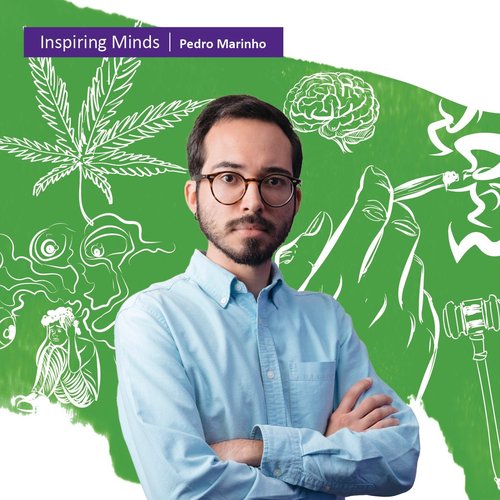Inspiring Minds seeks to broaden awareness and impact of graduate student research, while enhancing transferable skills. Students were challenged to describe their research, scholarship or creative activity in 150 or fewer words to share with our community.

Long-term effects of adolescent cannabis use and its interaction with schizophrenia
As cannabis legalization becomes more widespread, there is a great availability of cannabis products, devices, and roots of administration. For instance, there has been an increase in cannabis vaping consumption among adolescents. Adolescence is a critical stage for brain development, and it is during this period where most drug experimentation starts. Due to the vulnerability of the adolescent brain, despite its proposed therapeutical effects, cannabis use may present detrimental consequences. Along with that, cannabis consumption is a contributing factor for psychiatric vulnerability and up to 83% of patients with schizophrenia use cannabis. In my project, I investigate the intersection between cannabis, adolescence, and the development of schizophrenia. Specifically, I investigate the long-term neurobiological consequences of adolescent cannabis use in the adult brain. It will allow for the development of therapeutics to treat cannabis-induced detrimental effects, and to develop prevention strategies to reduce the harm of cannabis consumption in vulnerable individuals.
Pedro Marinho
PhD candidate, Anatomy and Cell Biology
Schulich School of Medicine & Dentistry - Western University
Pedro completed a double undergraduate degree in Biology and Education from Federal University of Paraiba, Brazil. Before joining the Khokhar Lab, he developed research on cognitive neuroscience and psychopharmacology, studying topics such as episodic-like memory, social behaviour, chronobiology and addiction. His PhD project will be focusing on aspects of addiction and other psychiatric conditions, especially related to development, circadian rhythms and psychopharmacology in rodents and non-human primates. In addition to Neuroscience, Pedro is also interested in the development of new teaching methodologies to teach science and biology and in the intersection of Neuroscience and Education.
You can connect with Pedro via email at pmarinh@uwo.ca.
View Pedro's work as it appears in the Inspiring Minds Digital Collection: https://ir.lib.uwo.ca/inspiringminds/532/.
